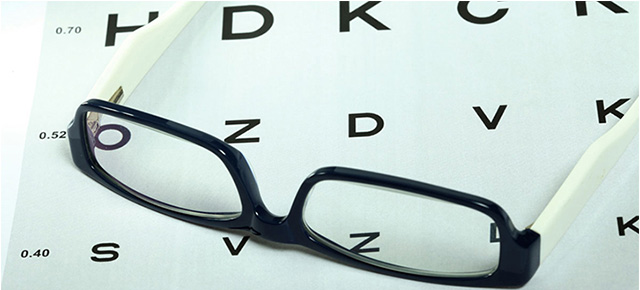Patient optometry records are regulated by federal and state laws in addition to participating provider contracts and professional licensing boards. A patient’s medical chart is essential to optometry. It is imperative that a patient’s chart contain accurate and detailed information pertaining to patient communications and treatment. Maintaining thorough patient charts protects both optometrist and patient.
Consider the following fictionalized vignette:
Ima Optometrist is a licensed optometrist in California who has been in practice for 3 years. A new patient, Ura Patient, arrives who complains of blurred vision in her left eye. During the examination, Ura does not mention seeing flashes of light but did note the flashes on the third page of the medical intake form. Ima did not see this symptom and referred Ura to see her primary care doctor after the examination. Ima did not refer Ura to an ophthalmologist. Months later, Ima receives notice from the California State Board of Optometry that a complaint has been filed against her alleging dental negligence for failure to diagnose retinal detachment. Ura’s chart is requested for review by the Board, and Ima’s career and reputation are threatened.
The above example underlines the importance of keeping detailed optometry patient charts. Maintaining thorough charts protects both patient and optometrist, yet some optometrists still choose either not to chart or to chart very briefly.
Patient records benefit the optometrist by providing:
• Guidance for professional treatment.
• Proof of the standard of care in the event that a patient’s record is requested, such as by a patient or after the Board receives a complaint.
• Protection against insurance company or Medicare audits.
• Protection in the event of catastrophic loss such as theft, fire, earthquake.
• Proof of continuity of care to a patient when a patient is referred to another professional, when a considerable period of time elapses between patient appointments, or if a patient is transferred to a different optometrist in the event of the unanticipated death/illness of the original optometrist.
• Protection in the event of legal or regulatory proceedings between optometrist and patient.
• Protection against charting or billing disputes or errors.
Patient records benefit the patient by providing:
• Treatment details for third-party reimbursement.
• Reminders to the practitioner of a patient’s medical history and treatment plan.
• Continuity of care to the patient when a patient is referred to another professional, when a considerable period of time elapses between patient appointments, or if a patient is transferred to a different optometrist in the event of the unanticipated death/illness of the original optometrist.
The management of patient records is regulated by federal and state laws in addition to professional licensing boards and benefits both optometrist and patient.
So why do some optometrists choose either not to chart or to keep minimal documentation?
Some optometrists resist following the medical model in terms of documentation because they feel it is not necessary or is too time-consuming. Others reason that only the briefest of SOAP notes is sufficient. Some may believe that keeping detailed records could violate a client’s confidentiality if records are sought by third parties, such as insurers. Others are overwhelmed or confused by HIPAA compliance regulations. Some erroneously assume that disciplinary action will never occur to them and, if it ever did, mistakenly believe that patient records could be cobbled together at that time. Some optometrists also believe that they will accurately remember relevant case details if ever needed, but it is important to note that a complaint may take several months to review and/or resolve.
Details within a patient’s file are of critical importance when a licensing board decides whether to pursue disciplinary action after receiving a patient’s complaint. If it’s not in the record, it didn’t happen. Optometrists must understand the laws, standards, and state licensing board requirements pertaining to patient medical records. If a patient visits, visit the patient’s chart.
We are here to help.
If you are an optometrist facing disciplinary action, it is imperative to enlist the assistance of an experienced licensing attorney at the earliest stage of the disciplinary process. The Law Offices of Lucy S. McAllister are here to help. We understand the unique legal complexities facing optometrists. We have the knowledge and experience to craft a comprehensive strategy and are dedicated to navigating your specific case through the disciplinary process to best defend your professional interests.
The Law Offices of Lucy S. McAllister have successfully represented a wide range of California licensed professionals including optometrists, nurses, physicians, pharmacists, chiropractors, dentists, and mental health practitioners. We are experienced in handling all types of licensing issues. Let us help you protect your professional license, your reputation, and your livelihood.
For additional information or to schedule a consultation on a professional licensing issue, please contact us today at (877) 280-9944.
For Additional Information
Consumer Complaint Information – California Board of Optometry












